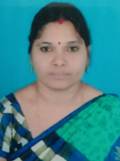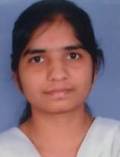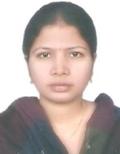About Department
The Department of Information Technology (IT) was established in 2005 with an Intake 60 for in Bachelor course in Information Technology. This Branch is fast growing discipline and full of rigorous practical analysis. This Department has well equipped laboratories and logical reasoning is stressed in all practical applications. With highly talented and dedicated faculty which includes one Professor with Doctorate and two Associate Professors. The department boasts of a unique mode of learning, Students of this branch has fulfilled the promise kept on them by getting selection in some of the top notch of software/hardware companies of India like Wipro, Infosys, Cognizant..etc

Dr J.PRAVEEN KUMAR
Contact:8498085231
Email-ID:hodit@tkrec.ac.in
VISION
The program aims at creating capable engineering professionals to meet the flourishing needs of the industry and society in the field of Information Technology.
MISSION
- Impart adequate employability skills to make the students industry ready with global standards.
- Inculcate ethical values and leadership qualities in addressing the societal needs using Information Technology.
Program Educational Objectives (PEO’s):
PEO 1: The graduates will be prepared to adopt emerging technologies for professional growth.
PEO 2:The graduates will be able to pursue research in upcoming technologies related to Information Technology with ethics.
PEO 3: The graduates will be able to apply their knowledge through lifelong learning to meet the challenges of the society.
Program Outcomes (PO’s):
PO1.Engineering knowledge: Ability to obtain and apply the knowledge of science and engineering essentials in problem solving.
PO2.Problem Analysis: Ability to undertake problem recognition ,formulation and providing ideal solution.
PO3.Design/development of solutions: An ability to design and implement a computer based system to meet the essential of social and environmental applications.
PO4.Conduct investigations of complex problems: An ability to apply knowledge of mathematics, science, engineering fundamentals and concepts of Information Technology to solve complex problems.
PO5. Modern tool usage: An ability to use the techniques, skills, and modern engineering tools necessary for engineering practice.
PO6.Engineer and society: An ability to understand the impact of engineering solutions on the society and also will be aware of contemporary issues.
PO7.Environment and sustainability: Understanding of the social, cultural, global and environmental responsibilities as a professional engineer.
PO8.Ethics: Understanding of the social, liberal, universal and provisional responsibilities as a well-qualified engineer.
PO9.Individual and team work: Ability to function adequately as an individual and in a group with the capacity to be a team leader.
PO10. Communication: Ability to communicate extensively, not only with engineers but also with the association at large.
PO11.Project management and finance: An understanding of engineering, finance and management principles to manage projects.
PO12.Life-long learning: Recognizing the need to undertake higher studies and inspires to update the latest technologies by the way of life-long learning process.
Program Specific Outcomes (PSO’s):
PSO1: Use and apply current trends, technologies and practices to provide Information Technology Solutions.
PSO2: Have strong skills in learning new programming environment as it is used to automate things and simplify real world problems and human efforts.
| Program name | R22 Regulation COS | R20 Regulation COS | R18 Regulation COS |
| Information Technology | VIEW | VIEW | VIEW |




















